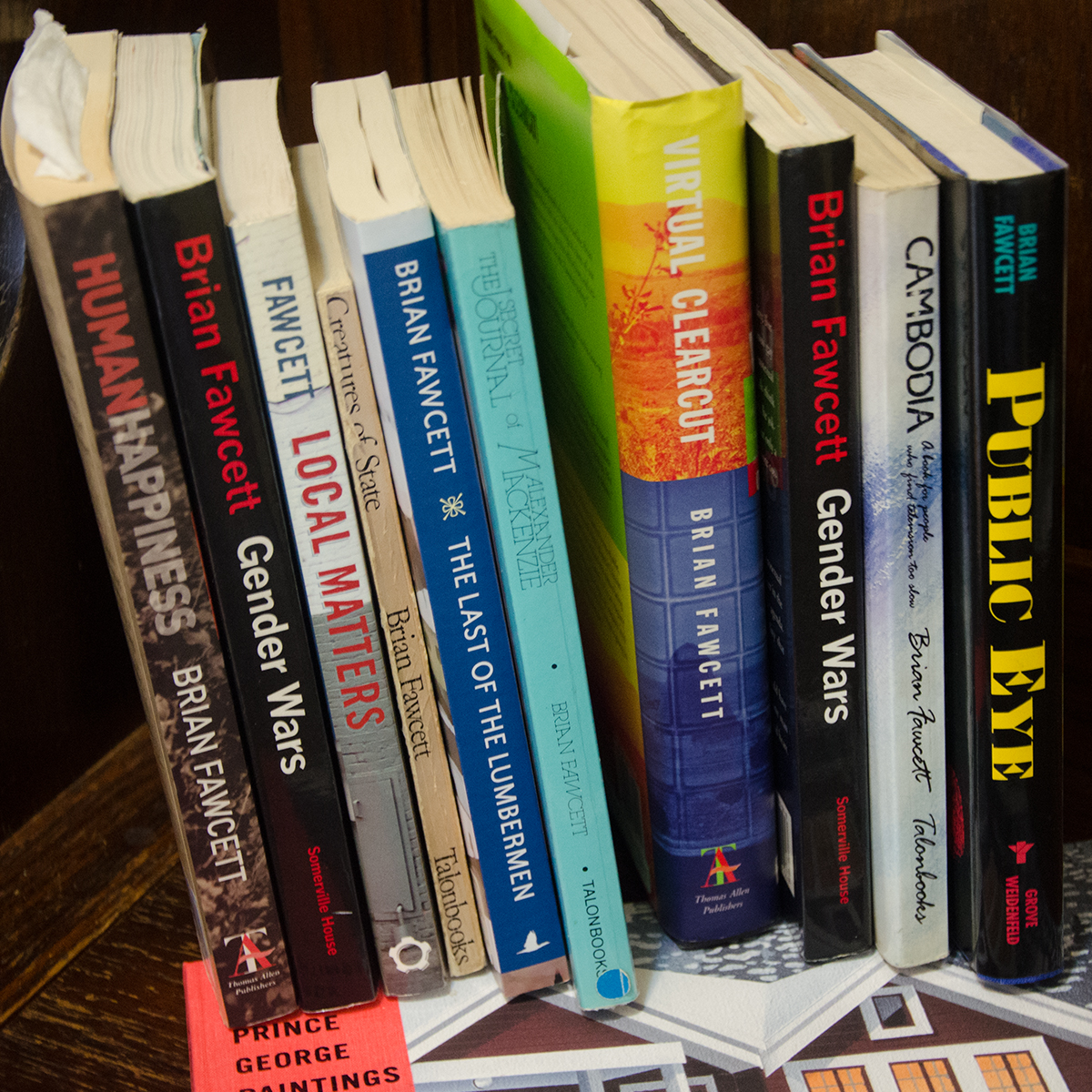
Brian Fawcett, 1944 to 2022 — More Reminiscences
I first met Brian Fawcett during a visit to Vancouver for Expo ’86. I was a reporter for The Medicine Hat News at the time.
Earlier in 1986, during a trip back to Medicine Hat, I had picked up a copy of The Globe and Mail in an airport newsstand. I was fascinated by a review in it of Fawcett’s Cambodia: A Book for People Who Find Television Too Slow. The Globe review indicated the book took an approach to events since 1975 in Southeast Asia that departed significantly from that of the standard academic and journalistic centre-left at that time.
I found this encouraging. I ordered the book through a small independent bookstore in downtown Medicine Hat. As I read through it, I was fascinated by its format and its interpretation of recent history and the role of major media in obscuring or scrambling actual events. I wrote a review of it for The News.
It might have been carried by other Southam Inc. papers, or maybe the publisher sent Brian a clipping. In any case, after touring Expo ’86 during my summer visit to Vancouver, I found out the address of his house on East 12th Avenue, took the bus out there and knocked on the door. He opened the door and called out to the other people in the house, “It’s Paul Strickland here!” as if I were a reviewer from a major Eastern metropolitan newspaper. He invited me in, we had a good conversation, and already it seemed we had always been good friends.
We started a regular correspondence. When I wrote him after moving to Prince George to take a reporting job at the Citizen, he responded, “You’re in my hometown. You should meet Harvey and Lilla at Other Art [then upstairs in a building on George Street].” He also said I should get to know Barry McKinnon and John Harris at the College of New Caledonia, and in addition visit Mosquito Books [then at the southwest corner of Fifth and Dominion].
Fairly early after my move to Prince George, I enjoyed conversation with him during a backyard barbecue at Barry’s house.
During the early 1990s the management of The Prince George Citizen sent some reporters to Vancouver for a Southam seminar on improving interviewing techniques. Brian met Marilyn Storie, Bev Christensen, Lee Anderson, me and other reporters for dinner at a Thai restaurant in, if I recall correctly, Burnaby. The reporters were very happy to have a chance to talk to him in that relaxed setting.
I wrote reviews of some of Brian’s books through the 1990s and into the early 2000s. He gave me background information on the forestry methods of the era that he considered destructive. Some of the reviews were reprinted in The Ottawa Citizen and other large central Canadian dailies.
I visited friends in the High Park neighborhood in Toronto during the early 2000s and spent an afternoon and early evening with Brian. He showed me around his neighborhood, pointing out restaurants and independent stores established by immigrants, which he praised as offering variety and originality. He also noted inroads by chain stores and fast-food franchises there that he referred to as “The Virus.” He showed me a lane behind his house where, in the few centimeters of dirt between a back fence and the concrete of the lane, he managed to grow excellent tomatoes, spices and specialty plants. This gave me insights into the background of his book on gardening.
He drove me to the Kensington district, its warehouses and trans-shipping points where hurried men loaded and unloaded products. “This is the focal point of capitalism,” he observed.
He followed and encouraged my career, and came quickly to my defence when downsizing threatened my job or I ran into difficulty with ideologues and with the rising tide of political correctness generally. He was very generous with his time and support. His essay in dooneyscafe.com, “A Poetry War in Prince George,” described the situation well. He was infinitely loyal to his friends.
He had a big influence on my life as a journalist and offered considerable help to ensure I stayed in that career as long as possible. I miss him greatly.